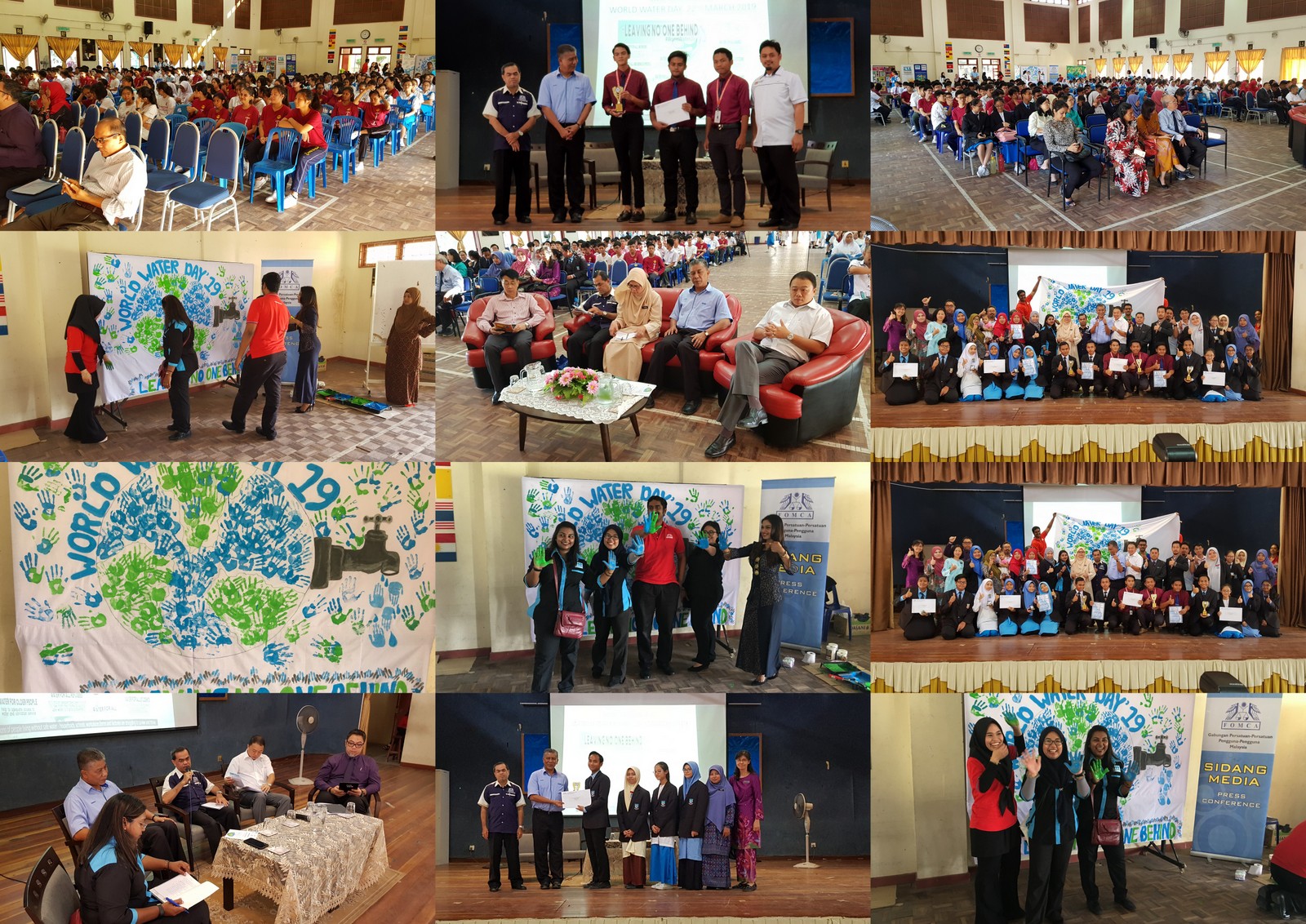The National World Water Day Celebration has been held in SMK Taman Sea on 22nd March 2019. The WWD Celebration was officiated by En Yusof b Abd Rahman, Vice President of Federation of Malaysian Consumers Association (FOMCA). A forum on 'Bekalan Air yang Bersih dan selamat untuk semua Moderator' was presidented by Miss Saral James Maniam as the President of Malaysian Water Forum. The panelist involved was the late Mr. Thomas a/l Joseph Thomas as the Director of Resource Planning and Engineering Services Division Water Regulatory Department (SPAN), Mr. Kelvin Siew Weng Hoe as the Head of Distribution AIR Selangor, Mr. Syamsul Hamdan as the Vice President of Water Quality and Laboratory Services Department from Syarikat Bekalan Air Selangor Sdn. Bhd.
At a time of immense global challenges such poverty, inequalities, natural disasters, humanitarian crises and forced displacement, the theme for World Water Day 2019 is ‘Leaving No One Behind’ with an aspect on why people have been left behind and how a change could be driven to this people accessing to water and sanitation and sustainable water management.
Marginalized group of people such as women, children, refugees, disabled people and many others are often overlooked when they try to access and manage safe water. ‘Safe water’ is for a ‘safely managed drinking water’ that is accessible at the premises, available when needed and free from contamination.
The human right to water and sanitation entitles everyone, without discrimination, to sufficient, safe, acceptable, physically accessible and affordable water for personal and domestic use which includes water for drinking, personal sanitation, washing of clothes, food preparation and personal and household hygiene.
In support of Vision 2020 (towards achieving developed nation status), Malaysia will conserve and manage its water resources to ensure adequate and safe water for all. Since Independence, Malaysia has undergone rapid economic and social development and together with better education, this has boosted people’s expectations of better standards of living. Water shortages and flooding are no longer thought of as natural disasters to be endured and accepted. At the same time, environmental awareness in the country has grown, as reflected in the growing number of public complaints on environmental pollution.
This reflects both the increase in the number of pollution sources due to the higher level of economic activities or the encroachment of new housing areas around existing factories or industries and a greater awareness of the dangers of environmental pollution.
The increased expectations of the people will bring about heavier demands on the water resources, both for water supply and for pollution control. In the context of increased demand from population growth and industrialization competing for diminishing water availability, the need for optimum utilization of water takes on greater urgency, moving towards efficiency and effectiveness of use, as well as conservation and sustainability.
However, without some positive vision, without some thought about what truly sustainable water use means, Malaysia risks continuing on a path that will take further and further in the wrong direction. Whether we succeed in ensuring that the future we want is the future we get will depend almost entirely on whether large numbers of people, generally, are convinced it is the future we need. Water is everybody’s business and we should endeavour to make every drop count.
In conclusion, to ‘leave no one behind’, Malaysia must focus on the efforts towards including people who have been marginalized or ignored. Water services must meet the needs of marginalized groups and their voices must be heard in decision-making processes. Regulatory and legal frameworks must recognise the right to water for all people, and sufficient funding must be fairly and effectively targeted at those who need it most.
